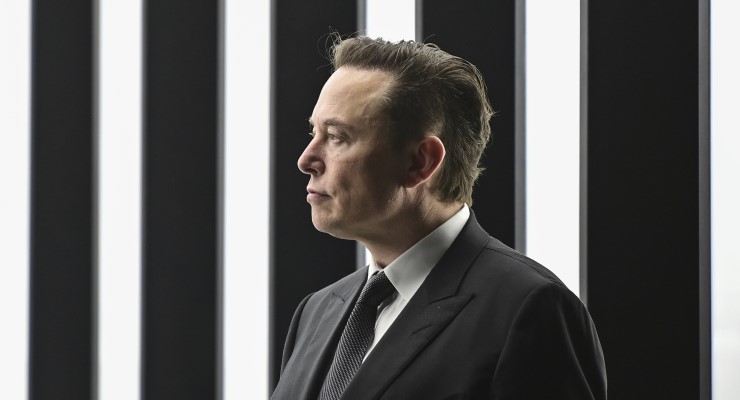
Yesterday Elon Musk was voted off the island by the rest of big tech.
Australia’s tech industry group Digital Industry Group Inc (DIGI) — which represents the biggest Silicon Valley tech companies including Google and Meta (owner of Facebook, Instagram, Threads and WhatsApp) — sanctioned X, the company formerly known as Twitter, for failing to meet the group’s own rules on how member platforms must deal with misinformation and disinformation.
One of DIGI’s main functions is to run the Australian code of practice on disinformation and misinformation, a self-regulation effort meant to show how the industry is capable of policing itself. On October 5, tech advocacy group Reset.Tech Australia complained that X was failing to meet its obligations arising from being a signatory. It said that X didn’t offer users a way to report electoral misinformation or voter intimidation and suppression efforts during the Voice to Parliament referendum.
However, the failure to let users report when someone is using its platforms to undermine an election wasn’t the reason X was removed as a signatory to the code. It was in fact that X had policies against this kind of electoral misinformation but didn’t offer a way to report it. The code’s requirements are hardly exhaustive and yet X wasn’t able to meet the lowest of bars. (To wit, if X hadn’t bothered to make policies about electoral misinformation, it would still be a signatory to the code.)
After a complaints process where X representatives promised to attend a meeting but pulled out less than two hours before and then promised to file a defence but never bothered, DIGI’s independent complaints subcommittee upheld the complaint.
What does this mean? To put it bluntly: sweet FA. X’s status as a signatory of the code has been withdrawn — but that’s the extent of the direct consequences. Greens digital rights spokesman Senator David Shoebridge tweeted that the punishment was a “whack with a wet lettuce leaf”.
There is community concern about online misinformation. In a survey by progressive think tank the Australia Institute, 72% of respondents were concerned about the “lies and misinformation that circulated on social media during the referendum campaign”.
And yet on X, which is barely hanging on but still remains the premiere online platform for news and politics through inertia, is not doing anything about the most egregious form of misinformation that seeks to derail a crucial, civic function. Other reporting by Guardian Australia shows that even the Australian Electoral Commission struggled to get X to remove viral bullshit.
In a way, X’s decision to just ignore the rules is helpful. It reveals how flimsy the pretence is that platforms run by foreign billionaires can be trusted to run themselves in a way that meets the expectations of Australia. Even when someone such as Musk has so blatantly and publicly flouted any duty of care for his platform’s users, we’re still playing catch-up. It’s too late to do anything about X’s failure to protect our electoral process during the referendum. The damage is already done.
It’s exactly the reason why something such as the government’s combating misinformation and disinformation bill exists. There are issues and risks with the bill in its current form — Communications Minister Michelle Rowland is making “some changes” before introducing it to Parliament next year — but failing to do anything is already putting our elections at risk.
Sick of the lies? Readers, we want to hear from you — especially while our comments are closed due to our website upgrade. Send us your thoughts on this article to letters@crikey.com.au. Please include your full name to be considered for publication. We reserve the right to edit for length and clarity.








Crikey encourages robust conversations on our website. However, we’re a small team, so sometimes we have to reluctantly turn comments off due to legal risk. Thanks for your understanding and in the meantime, have a read of our moderation guidelines.